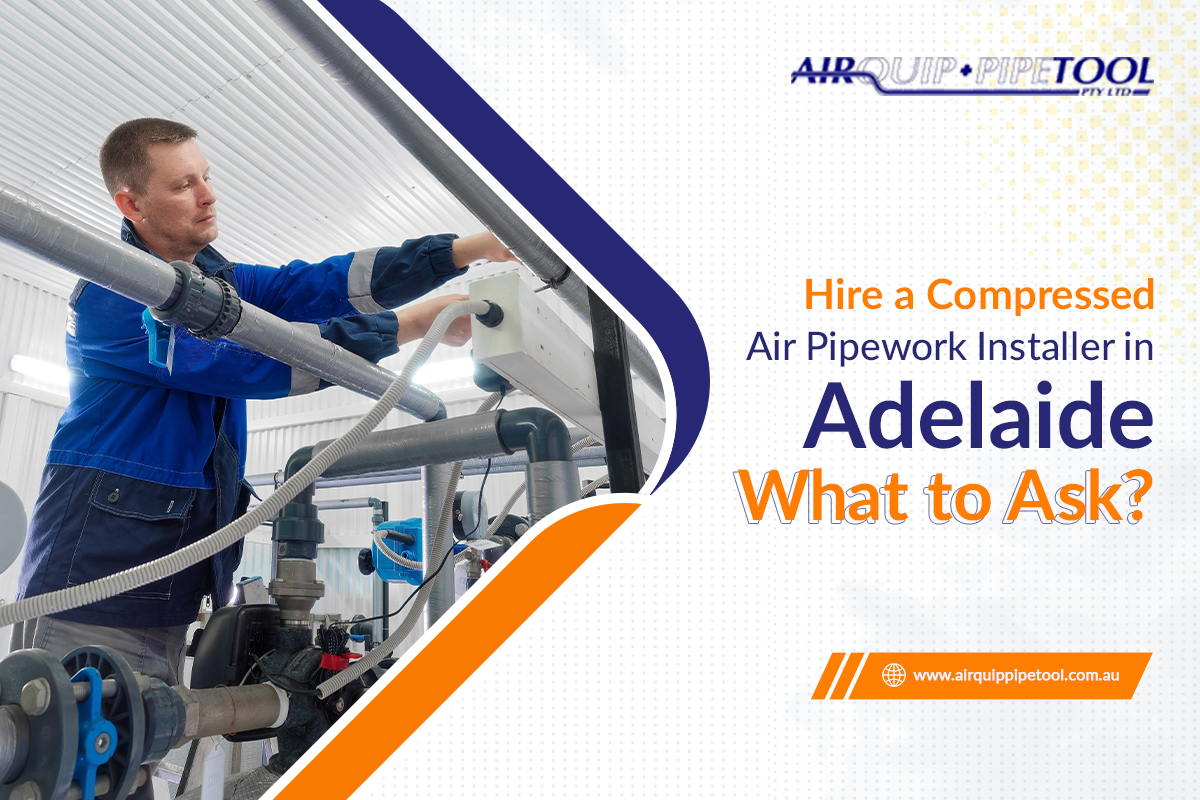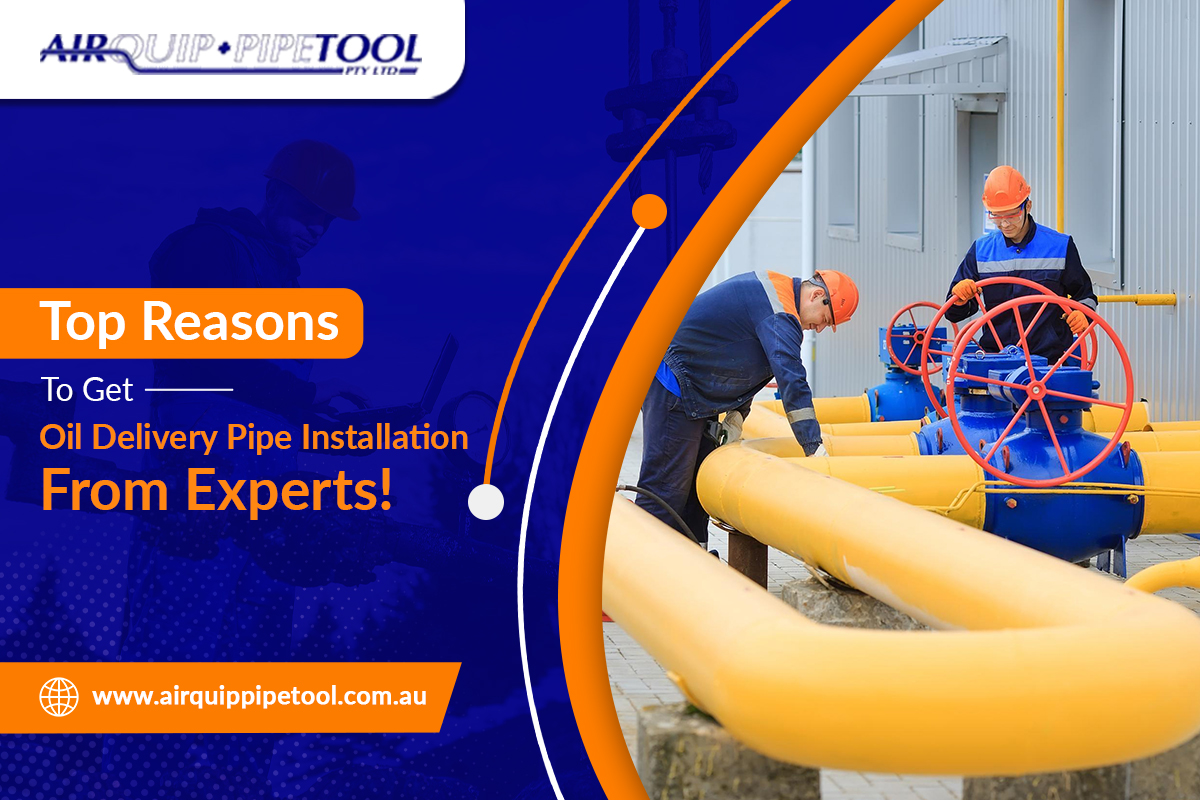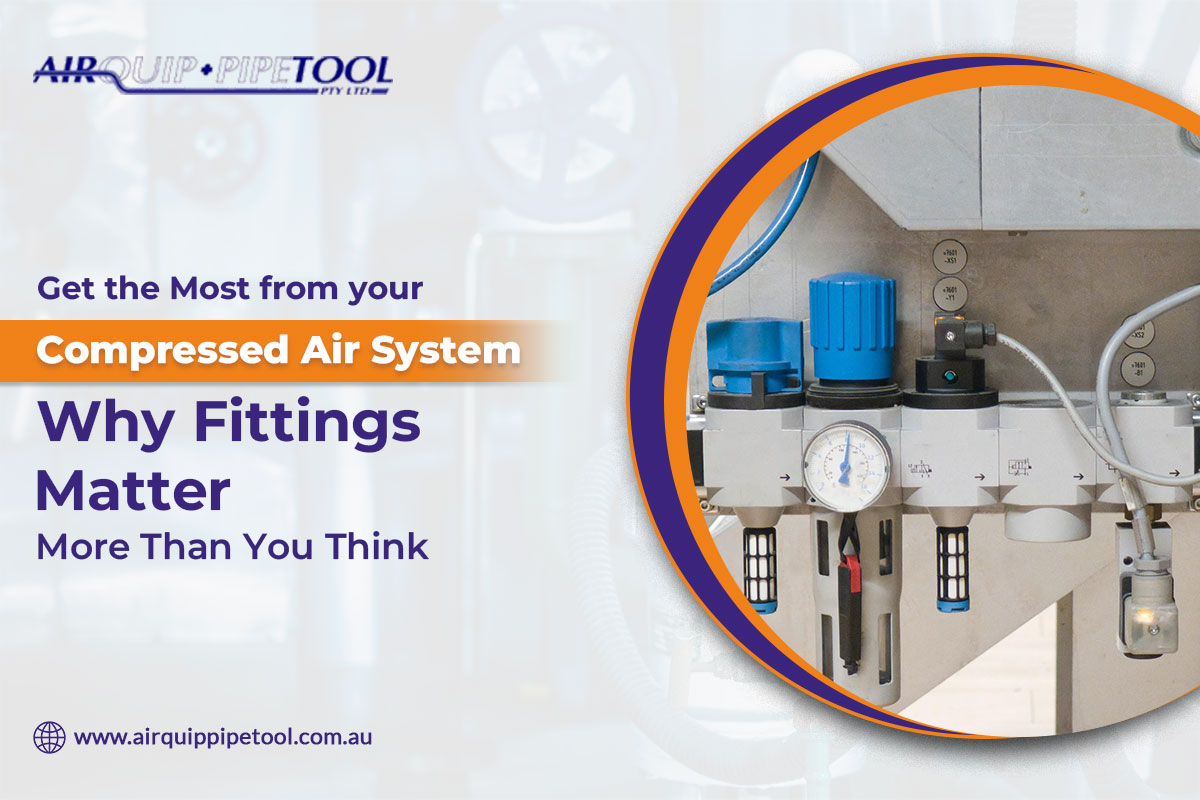- by airquippipetool
- . 26 Jun 2025
Hire a Compressed Air Pipework Installer in Adelaide: What to Ask?
At Airquip and Pipetool, we specialise in designing and installing waste fluid reticulation systems for heavy vehicle workshops. A properly designed system not only ensures that waste fluids are handled safely, but also optimises workshop efficiency and helps reduce the risk of contamination. In this post, we’ll explore how to select the right pipework materials for these systems and why choosing the best materials is so important.
Before diving into the specifics of pipework materials, it’s worth discussing the advantages of a centralised waste fluid system versus a localised collection system (i.e., individual waste fluid containers at each service bay).
Now that we’ve covered the benefits of a centralised system, let’s look at how to select the right pipework materials for the job.
When designing a waste fluid reticulation system, it’s essential to choose the right materials that will ensure durability, reliability, and safety. The pipes must withstand the corrosive nature of oils, coolants, and other fluids commonly used in heavy vehicle maintenance. At Airquip and Pipetool, we focus on using materials that are robust, resistant to corrosion, and capable of handling the volumes and pressures involved in a workshop’s waste fluid system.
Stainless steel is our go-to material for waste fluid reticulation systems in heavy vehicle workshops. Here’s why:
HDPE is another excellent choice for waste fluid pipework, offering a balance of cost-effectiveness and chemical compatibility:
Aluminium is another material we use in specific situations for waste fluid systems, particularly when a lightweight option is required.
While there are many materials that might seem suitable for waste fluid systems, we avoid using certain materials due to issues like corrosion, brittleness, or chemical incompatibility with workshop fluids. These include:
At Airquip and Pipetool, we understand that the materials used in a waste fluid reticulation system play a critical role in ensuring the safety, efficiency, and longevity of the system. By choosing materials like stainless steel, HDPE, and aluminium, we ensure that your workshop’s waste fluid collection system will stand up to the demanding conditions of a heavy vehicle workshop.
A centralised waste fluid system provides numerous benefits, including increased safety, improved efficiency, and environmental protection. By installing a robust, well-designed pipework system with the right materials, you can streamline operations, reduce maintenance costs, and ensure that waste fluids are disposed of safely and efficiently. If you’re looking to install or upgrade a waste fluid reticulation system in your heavy vehicle workshop, Airquip and Pipetool can help. Our expertise and commitment to quality mean that we deliver reliable, cost-effective systems tailored to your needs
.
 " alt="">
" alt="">
Hire a Compressed Air Pipework Installer in Adelaide: What to Ask?
 " alt="">
" alt="">
Top Reasons To Get Oil Delivery Pipe Installation From Experts!
 " alt="">
" alt="">
Get the Most from Your Compressed Air System: Why Fittings Matter More Than You Think

Installing an effective compressed air pipework system is important for any industrial facility. Compressed air is frequently the lifeblood of your everyday operations. Regardless of how big or small your […]

For an uninterrupted operation of workshops, industrial service bays, and fleet maintenance facilities, a better functioning oil supply piping system is necessary. This system maintains the healthy transportation of high-pressure oil […]

Industries from manufacturing to automotive workshops, compressed air lines in Adelaide are an indispensable system. But a reliable compressor alone doesn’t guarantee performance. The real backbone of an efficient system […]
Copyright © 2025 airquippipetool | All rights reserved